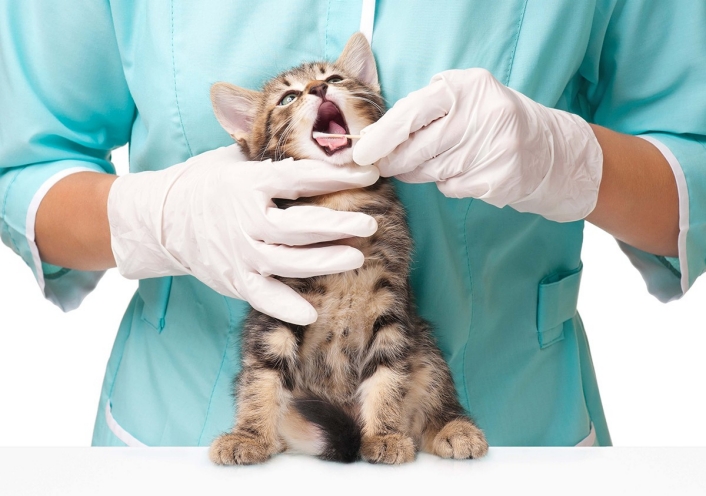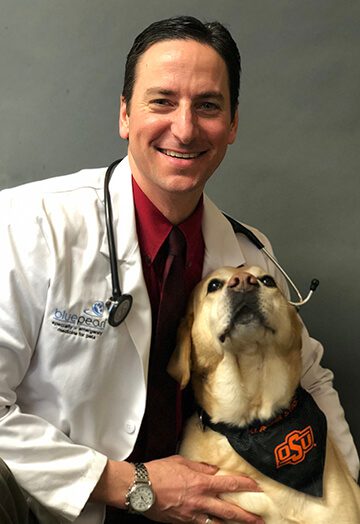Vet Enterprise Provides Specialized Take Care Of Your Pet's One-of-a-kind Health Needs
Vet Enterprise Provides Specialized Take Care Of Your Pet's One-of-a-kind Health Needs
Blog Article
Inoculation Standards From Your Trusted Vet
Vaccination standards offered by your relied on vet play an important role in guarding your pet's wellness and well-being. In addition, attending to common false impressions surrounding vaccines can further boost animal proprietors' self-confidence in these preventative steps.

Significance of Inoculations
Inoculations play a pivotal role in securing animals versus a series of avoidable conditions. By stimulating the immune system to acknowledge and deal with particular pathogens, vaccinations substantially minimize the occurrence of infectious illness that can affect a pet's health and wellness and durability. Not only do vaccinations protect specific animals, however they also add to herd immunity, therefore minimizing the overall occurrence of diseases in the family pet population.
Timely vaccinations aid to alleviate the spread of illness such as rabies, parvovirus, and distemper, which can have severe repercussions for both people and pet dogs. Furthermore, vaccinations are commonly a need for boarding facilities, grooming solutions, and dog parks, making them necessary for those who wish to mingle their pets.

Core Injections for Family Pets
While the details inoculation requirements of pet dogs can vary based upon individual factors, core injections are widely recommended to shield against one of the most typical and serious diseases (Vet Enterprise). Core vaccines are those considered necessary for all pet dogs, no matter their way of life or geographical location, as they guard against potentially deadly and extremely transmittable ailments
For canines, the core vaccines include those for canine distemper, parvovirus, adenovirus (hepatitis), and rabies. Adenovirus can result in liver disease, while rabies is a zoonotic condition that poses a risk to both pets and human beings.
In pet cats, core injections include feline panleukopenia, feline calicivirus, feline herpesvirus (rhinotracheitis), and rabies. Feline panleukopenia is an extremely transmittable viral disease that affects the immune system and intestinal tracts. Calicivirus and herpesvirus are major contributors to upper breathing infections in cats, while rabies continues to be an important problem for public wellness.
Seek advice from your vet to guarantee your pets obtain their core inoculations on schedule.
Non-Core Vaccines Explained
Non-core vaccinations are tailored to address certain dangers connected with a family pet's atmosphere, direct exposure, and lifestyle to particular diseases. Unlike core vaccines, which are generally advised for all pets, non-core vaccinations are taken into consideration based upon individual circumstances. These vaccines are specifically crucial for pets that may come across one-of-a-kind microorganisms as a result of their geographical area, travel practices, or activities.
Instances of non-core injections include those for Bordetella bronchiseptica, which is linked to kennel cough, and Lyme condition, triggered by ticks. Pets that frequently communicate with various other animals, such as those in boarding centers, pet dog parks, or grooming settings, might gain from Bordetella inoculation. If you live in an area where Lyme condition is widespread, vaccinating against this illness can be a prudent choice for outdoor-loving pets.
Various other non-core vaccinations might include those for leptospirosis, read what he said canine influenza, and feline leukemia, depending on the details threat elements present. It is essential to have an extensive discussion with your vet regarding your pet dog's lifestyle and the possible need for these vaccines, ensuring a customized inoculation approach that ideal shields your furry buddy.
Inoculation Set Up Overview

As animals mature, it is essential to comply with the recommended booster inoculations. Pet Health Checkup. For grown-up animals, core vaccinations are typically offered each to 3 years, depending on the certain vaccine and regional laws. Non-core injections may be recommended based on way of life elements and local disease frequency, necessitating a tailored approach
Routine vet exams are vital for upgrading click to read more inoculation timetables. Your vet can offer advice on the most suitable immunizations for your pet dog, factoring in age, wellness condition, and ecological dangers. By remaining aggressive and notified, pet dog proprietors can guarantee their fuzzy friends receive prompt and reliable vaccinations, thus guarding their wellness and health throughout their lives.
Common Misconceptions Regarding Injections
Mistaken beliefs about pet inoculations can cause complication and unwillingness among animal proprietors relating to the immunization procedure. One prevalent misconception is that injections are unnecessary for indoor animals. While it holds true that indoor family pets face lower threats, they are not totally unsusceptible to diseases, as pathogens can be introduced with numerous ways, consisting of human clothes and various other pets.
One more false impression is that injections can cause the illness they aim to avoid. Actually, the majority of vaccinations have suspended or undermined pathogens, which can not create condition in healthy and balanced animals. Some pet dog proprietors likewise think that their pet dogs should not be vaccinated if they are already healthy; nevertheless, inoculations are a proactive step that assists prevent the start of illness.
In addition, numerous pet proprietors are afraid that vaccinations will lead to long-term health problems. The advantages of inoculation-- shielding pet dogs from possibly dangerous conditions-- much exceed the dangers.
Conclusion
In summary, adherence to vaccination standards is essential for ensuring the health and wellness and long life of pets. Eliminating usual misconceptions bordering vaccinations additionally reinforces the value of educated decision-making in animal treatment.
Not just do vaccinations secure private pets, but they additionally contribute to herd immunity, therefore reducing the overall occurrence of illness in the family pet populace.
False impressions concerning family pet inoculations can lead to complication and hesitation among animal owners relating to the booster shot process. While it's real that indoor animals encounter reduced threats, they are not Recommended Site totally immune to conditions, as microorganisms can be introduced with different methods, including human garments and various other family pets.
Some animal proprietors likewise believe that their pet dogs must not be vaccinated if they are already healthy; however, inoculations are a proactive measure that aids avoid the onset of ailment.
The benefits of vaccination-- safeguarding animals from potentially dangerous diseases-- far surpass the risks.
Report this page